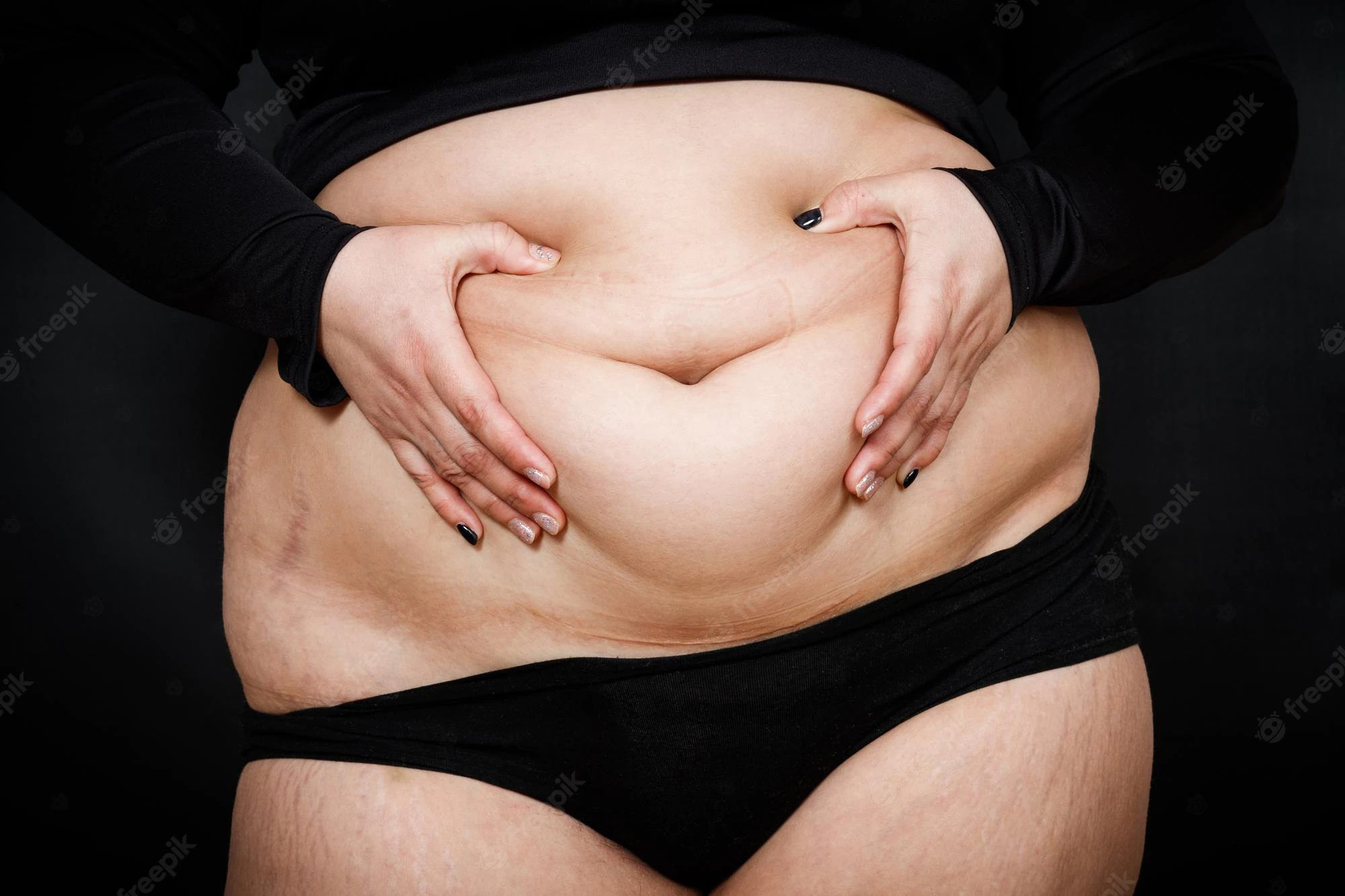
Stretch marks are a common side effect of pregnancy, but there are ways to prevent them. In this article, we’ll outline the best ways to reduce the chances of getting stretch marks during your pregnancy and explain how to deal with them if they do occur.
Contents
- 1 Causes of Stretch Marks
- 2 Ways to Prevent Stretch Marks
- 3 Foods that Cause Stretch Marks
- 4 Tips for Avoiding Stretch Marks
- 5 Causes of Stretch Marks
- 6 How to prevent Stretch Marks During Pregnancy
- 7 Home Remedies for Stretch Marks
- 8 Types ofStretch Marks
- 9 Prevention of Stretch Marks during Pregnancy
- 10 How to Prevent Stretch Marks during Pregnancy
- 11 Types of Stretch Marks
- 12 How to Prevent Stretch Marks During Pregnancy
- 13 Home Remedies to Prevent Stretch Marks During Pregnancy
- 14 What are stretch marks?
- 15 How do stretch marks develop during pregnancy?
- 16 How to prevent stretch marks during pregnancy?
- 17 Conclusion
Causes of Stretch Marks
Stretch marks are a phenomenon that can occur during any stage of pregnancy, but are more likely to happen in the second and third trimesters. They are also more likely to persist after delivery.
There are many potential causes of stretch marks, but the most common ones are hormonal changes and weight gain.
Hormonal changes during pregnancy can cause skin to become stretched out and lose its elasticity. This can happen because the pregnant woman’s body produces higher levels of estrogen, which can make the skin more sensitive to stretching. Weight gain can also increase the likelihood of stretch marks, as skin becomes thinner and less elastic due to increased pressure from the weight.
There is not currently a cure for stretch marks, but there are ways to prevent them from occurring. Minimizing weight gain and avoiding excessive stretching will help reduce the likelihood of developing stretch marks, while topical treatments such as creams or lotions may help to improve their appearance.
Ways to Prevent Stretch Marks
Stretch marks are a common side effect of pregnancy and childbirth. They can occur on any part of the body, but are most common on the breasts, stomach, and thighs. There is no one cure for stretch marks, but there are many ways to prevent them from occurring. Here are some tips:
Wear loose clothes during your pregnancy. This will give your skin a lot of room to move and avoid tension caused by tight clothing. Try not to wear clothes that are too tight or too baggy.
Stay hydrated. Drink plenty of water both during and after your pregnancies to help keep your skin healthy and hydrated. This will also help reduce the risk of stretch marks.
Avoid overexercising. Pregnant women should avoid strenuous exercise because it can increase the risk of Miscarriage and also cause stretch marks on the abdomen and hips. Limit your activity to moderate-intensity aerobic exercise which will still help you stay fit during your pregnancy.
Use sunscreen every day when you are outdoors during your pregnancy. Sunscreen will help protect you against the sun’s harmful rays, which can cause stretch marks on the skin.
Apply moisturizer to your
Foods that Cause Stretch Marks
Stretch marks are a common side-effect of pregnancy and can happen on any body part, including the breasts. The good news is that there are some things you can do to prevent them from forming. Here are five foods that are known to cause stretch marks:
1. Caffeine ― Caffeine is a natural stimulant, which means it can cause your skin to “tighten” up. This can lead to stretch marks if your skin is already thin and prone to breaking down in the first place. Avoid coffee, energy drinks, and other sources of caffeine before bedtime to help reduce the risk of stretch marks.
2. Alcohol ― Alcohol is another common culprit for stretch marks. It dehydrates your skin and can also increase blood flow to your skin, which can lead to breakage and stretch marks. Limit alcohol consumption during pregnancy to avoid these problems.
3. Sugar ― Too much sugar can also be a leading cause of stretch marks. Sugar is a carbohydrate, and when your body metabolizes it, it creates glycosaminoglycans (GAGs), which are components of collagen. GAGs help keep the skin elastic, but too much sugar can lead to
Tips for Avoiding Stretch Marks
Stretch marks can happen during pregnancy, but there are ways to help prevent them. Here are some tips:
– Eat a balanced diet and make sure you’re getting enough of the nutrients needed for skin growth.
– Include plenty of water in your daily routine. This will help keep your skin hydrated and avoid dryness that can lead to stretch marks.
– Avoid using harsh soaps and lotions on your skin when you’re pregnant. These can irritate your skin and cause stretch marks.
-Avoid wearing clothes that are too tight or too revealing if you’re prone to getting stretch marks. These types of clothing can pull on your skin and cause them to form more quickly.
– Talk to your doctor about any concerns you have about stretch marks and pregnancy. He or she may be able to recommend some products or treatments that could help prevent them from happening.
Causes of Stretch Marks
Preventing stretch marks is important for both moms-to-be and their babies! Here are some tips to help:
1. Maintain a healthy weight during your entire pregnancy. If you’re overweight or obese, your skin may not have enough room to stretch and form stretch marks.
2. Avoid wearing tight clothing, especially around the stomach and chest. Tighter clothing can cause your skin to recoil, which can lead to stretch marks.
3. Drink plenty of water throughout your pregnancy and avoid drinking alcohol, caffeine, and smoking. These substances can dehydrate your skin and make it more susceptible to forming stretch marks.
4. Apply sunscreen every day, even when you don’t plan on going outside. Sun exposure can cause your skin to become stretched and develop stretch marks.
5. Get regular massage therapy during your pregnancy to help reduce tension on the skin and help prevent stretch marks from forming.
How to prevent Stretch Marks During Pregnancy
Stretch marks are a common side effect of pregnancy, but there are ways to minimize their appearance.
One way to prevent stretch marks is to be mindful of your body during your pregnancy. Make sure you’re exercising regularly and eating a balanced diet. If you’re overweight, you may want to try to lose weight before getting pregnant in order to help reduce the risk of developing stretch marks.
If you do develop stretch marks, there are treatments available that can diminish their appearance. You can use topical creams or injections to improve the appearance of stretch marks, or you can have them surgically removed.
Home Remedies for Stretch Marks
There are many home remedies for preventing stretch marks during pregnancy. Some people swear by using apple cider vinegar, others use honey or Shea butter. You can also try various oils, like jojoba or olive oil. You just have to find one that you like and use it regularly!
Types ofStretch Marks
When you are pregnant, your body is going through a lot of changes. One of these changes is the increase in blood flow and swelling. This can cause stretch marks, which are skin indentations that occur as the skin stretches and shrinks unevenly.
There are a few things you can do to prevent stretch marks from developing during pregnancy. First, make sure to eat a balanced diet that includes enough protein and essential nutrients. Second, avoid excessive weight gain during your pregnancy. Third, exercise regularly to keep your muscles strong and toned. Fourth, use sunscreen every day to protect your skin from the sun’s harmful radiation.
If you experience any stretch marks during your pregnancy, be sure to talk to your doctor about treatment options. There are many safe and effective treatments available that can help improve the appearance of your skin.
Prevention of Stretch Marks during Pregnancy
There are a few things that you can do to help prevent stretch marks during pregnancy. First, make sure to eat a healthy diet. This will help to ensure that your skin is getting the nutrients it needs to stay elastic. Additionally, make sure to drink plenty of water and avoid caffeine and alcohol. These substances can dehydrate your skin and lead to Stretch Marks.
Finally, be sure to take care of your skin when you are pregnant. Avoid using harsh soaps and scrubs, and instead use milder versions. These will not cause irritation and will help keep your skin healthy.
How to Prevent Stretch Marks during Pregnancy
Stretch marks are a common side effect of pregnancy, but there are ways to prevent them. Here are four tips:
1. Start prenatal care early. A lot can change during the first trimester, including your body’s ability to stretch. Talk to your doctor about starting care as early as possible to make sure you are getting the best possible care.
2. Wear supportive clothing. Not all clothes will help prevent stretch marks, but wearing clothing that supports your skin and is fitted tightly against your body can go a long way in helping reduce the appearance of them. For example, wear fitted clothes that extend down over your pelvic bones and support your bust line.
3. Use sunscreen and moisturizer regularly. Sunscreen and moisturizer help protect your skin from the damaging effects of the sun and dryness, respectively. Apply sunscreen liberally every day and moisturize regularly throughout the day if you can. Avoid using heavy body lotions or creams, as they can be counterproductive and increase the likelihood of developing stretch marks.
4. Consider laser treatments. If you do develop stretch marks, some doctors may recommend laser treatments as a way to reduce their appearance or
Types of Stretch Marks
Stretch marks can happen during any stage of pregnancy, but are most common during the first trimester. They may also occur in the second and third trimesters.
There are three types of stretch marks: structural, collagen, and elastin. Structural stretch marks are caused by increased collagen production in the skin. Collagen is a connective tissue that helps to make skin elastic. Elasticity is important for maintaining a good shape and protecting the skin from trauma. This type of stretch mark is usually red and feels hard to the touch. Elastin is a type of proteins that makes skin elastic. Elastin is also responsible for the skin’s natural color, texture, and resilience. These stretch marks are usually pale or yellow and feel softer than structural stretch marks.
Most people who get stretch marks don’t have any symptoms. However, some people may experience pain, tenderness, or redness at the site of the mark. If you experience these symptoms, consult your doctor.
There isn’t much that you can do to prevent stretch marks during pregnancy other than follow your doctor’s recommendations for a healthy diet and exercise routine.

How to Prevent Stretch Marks During Pregnancy
stretch marks are a common occurrence during pregnancy, but there are ways to prevent them.
One of the most important things you can do to prevent stretch marks is to keep your skin hydrated. When your skin is hydrated, it retains more moisture and doesn’t produce as many oils, which can lead to stretch marks. Additionally, make sure to apply sunscreen every day during your pregnancy. Sun exposure can cause your skin to become more elastic and prone to developing stretch marks. Finally, avoid using too much pressure when stretching your skin. If you’re doing any kind of physical activity that might cause you to pull on your skin, be sure to use Loose Clothing or equipment instead so that you don’t put excessive tension on your skin.
If you do develop stretch marks, there are some treatments available that can help soften them and improve their appearance. Many dermatologists also offer laser treatments that can help reduce the size and severity of stretch marks. So if you’re worried about getting stretch marks during your pregnancy, be sure to talk to your doctor about what options are available to you.
Home Remedies to Prevent Stretch Marks During Pregnancy
Stretch marks are a common occurrence during pregnancy. While there is no guaranteed way to prevent them, there are some natural remedies that may help.
One of the most effective ways to prevent stretch marks is to hydrate yourself properly. Make sure to drink plenty of water and avoid sugary drinks. Additionally, eat foods that are high in potassium and magnesium, which can help reduce the appearance of stretch marks. You can also apply topical treatments such as sunscreens and moisturizers that contain ingredients like argan oil or shea butter to help keep your skin healthy and hydrated.
If you do develop stretch marks, there are methods available to treat them. Typically, a dermatologist will prescribe a topical cream or gel that contains hydroquinone or tretinoin. These medications work by lightening the skin and stopping the production of new stretch marks. In some cases, laser treatment may be recommended as a final option.
What are stretch marks?
Stretch marks are scars that form on the skin when it is stretched or pulled excessively. They are most commonly seen during pregnancy and often occur on the belly, breasts, and thighs.
Prevention of stretch marks during pregnancy is key! Here are some tips to help keep you safe:
– Avoid pulling and stretching the skin excessively. This can cause stretch marks to form.
– Wear clothes that fit snugly but comfortably. This will help prevent skin from being stretched too much.
– Use moisturizer and sunscreen to keep your skin healthy and protected from the sun. These two factors can also help prevent stretch marks from forming.
– Consult with a doctor if you notice any signs of stretch marks developing, such as pain, redness, or swelling. He or she can advise you on the best course of action for preventing them from forming in the first place.
How do stretch marks develop during pregnancy?
Stretch marks are a common occurrence during pregnancy. They typically form on the skin in response to sudden and repeated stretching or pressure. The most common locations for stretch marks to form are around the breasts, abdomen, hips, and thighs.
Many pregnant women worry about developing stretch marks, but there is no need to panic. There are several things you can do to help reduce your risk of developing them:
– avoid excessive stretching or pressure during your workouts
– use body lotion regularly to help keep your skin hydrated and elastic
– take care when you wear tight clothing or swimsuits
– use a sunscreen with a broad spectrum SPF when outdoors
– avoid breastfeeding if you are concerned aboutStretch marks are a common occurrence during pregnancy. They typically form on the skin in response to sudden and repeated stretching or pressure. The most common locations for stretch marks to form are around the breasts, abdomen, hips, and thighs. Many pregnant women worry about developing stretch marks, but there is no need to panic. There are several things you can do to help reduce your risk of developing them:
How to prevent stretch marks during pregnancy?
Pregnancy is a time when your body goes through many changes. One of these changes is the production of stretch marks, which can occur on any part of your body.
Here are some tips to help prevent stretch marks during pregnancy:
1. Use moisturizers and sunscreens regularly: Moisturizers help keep your skin hydrated, which helps reduce the likelihood of developing stretch marks. Sunscreen also helps protect your skin from the sun’s harmful UV rays, which can cause skin damage and contribute to the development of stretch marks.
2. Avoid wearing tight clothing: Wearing tight clothing can cause excessive stretching and damage to your skin. Instead, opt for clothes that fit comfortably but don’t feel too tight or restrictive.
3. Avoid tanning beds: Tanning beds are known to be a major cause of stretch marks because they increase the amount of collagen in the skin. Collagen is a protein that helps keep the skin firm and elastic, but tanning beds can break down this protein and lead to the development of stretch marks.
4. Use heating pads: Heating pads are a great way to treat minor aches
Conclusion
Stretch marks are a common occurrence during pregnancy, but there are ways to prevent them from happening. When you’re pregnant, your skin is constantly expanding and contracting. This can cause stretch marks if the skin is stretched too far beyond its elastic limit. To help prevent stretch marks, make sure to moisturize regularly and avoid excessive stretching of the skin. If you do experience stretch marks, try using topical creams or lightening treatments to reduce their appearance.

